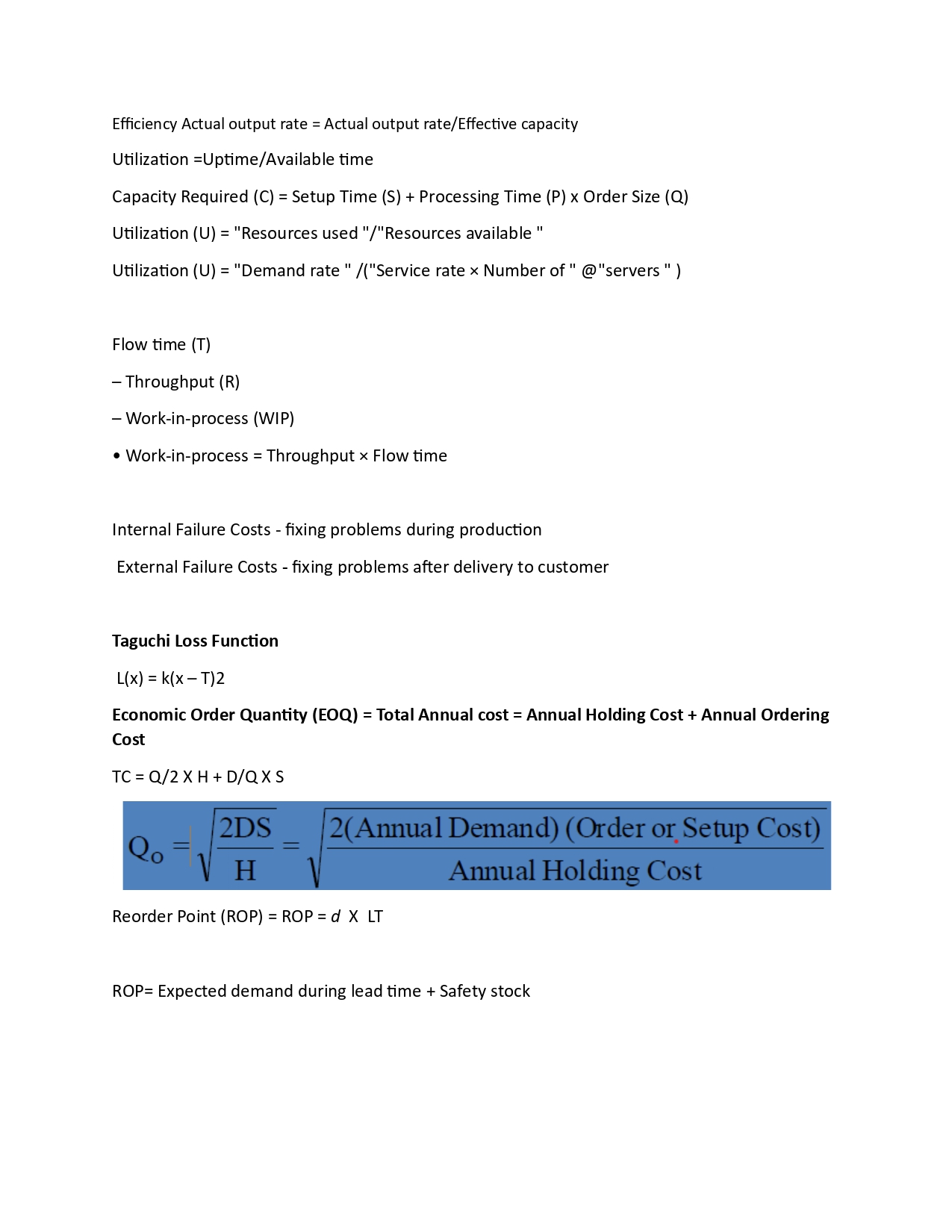Answered step by step
Verified Expert Solution
Question
1 Approved Answer
Nestle decides to manufacture a new candy bar. Weekly demand is 250 bars (deterministic demand) Cost of each bar is $2.80. They have just


Nestle decides to manufacture a new candy bar. Weekly demand is 250 bars (deterministic demand) Cost of each bar is $2.80. They have just upgraded their warehouse and have decided to assign a carrying charge rate of 0.6, and have calculated their ordering cost to be $11.99. After placing an order, it takes exactly 12 days to receive the order in their warehouse. What would be the reorder point if Nestle operates 280 days a year? (15 points) Efficiency Actual output rate = Actual output rate/Effective capacity Utilization Uptime/Available time Capacity Required (C) = Setup Time (S) + Processing Time (P) x Order Size (Q) Utilization (U) = "Resources used "/"Resources available "I Utilization (U) = "Demand rate "/("Service rate x Number of "@"servers") Flow time (T) -Throughput (R) - Work-in-process (WIP) Work-in-process = Throughput x Flow time Internal Failure Costs - fixing problems during production External Failure Costs - fixing problems after delivery to customer Taguchi Loss Function L(x) = k(x-T)2 Economic Order Quantity (EOQ) = Total Annual cost = Annual Holding Cost + Annual Ordering Cost TC Q/2X H+ D/QX S = 2DS H 2(Annual Demand) (Order or Setup Cost) Reorder Point (ROP) = ROP = d X LT Annual Holding Cost ROP= Expected demand during lead time + Safety stock
Step by Step Solution
There are 3 Steps involved in it
Step: 1

Get Instant Access to Expert-Tailored Solutions
See step-by-step solutions with expert insights and AI powered tools for academic success
Step: 2

Step: 3

Ace Your Homework with AI
Get the answers you need in no time with our AI-driven, step-by-step assistance
Get Started


